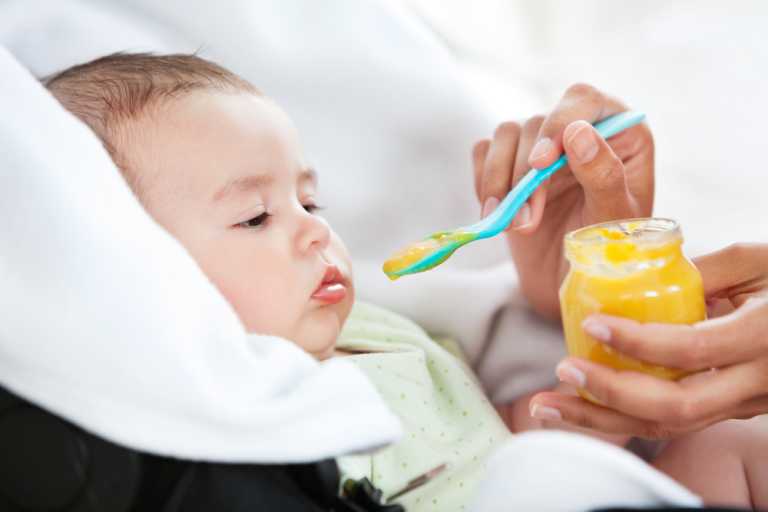There isn’t just one specific reason your baby is fighting the bottle while he or she is still hungry. There could be one or several things going on that are causing your baby to do this.
Common Reasons Your Baby is Fighting the Bottle
Your baby is uncomfortable while feeding
If your baby doesn’t like the position he or she is being held in during feeding, there is no bottle that they’re going to take. Be sure your baby is comfortable to minimize fussiness and help them take their bottle.
You just finished weaning your baby
Babies who were exclusively breastfed and are new to the bottle game may not be huge fans at first. Give them a chance to get used to it. Eventually, they’ll realize if they want to eat, this is the new game in town.
There is an issue with the bottle’s nipple
Nipples on bottles are designed for different flows. As your baby gets older, the flow of their bottle changes. Be sure you’re using the right type of nipple so your baby is steadily getting their milk or formula.
You need to switch formulas
If you’re formula feeding, the brand you’re giving your baby can cause some tummy troubles. Babies are smart and are not going to take something they know will make them feel bad. You may need to experiment with some different types of formula or ask your pediatrician for recommendations to make sure there is not an underlying allergy.
Your baby is sick
When you’re sick you may not feel like eating, and your baby can be the same way. They could be refusing the bottle if they have a stomach bug or a little cold. A trip to the pediatrician can help determine what’s going on and what you can do to help your baby.
The temperature is off
Some babies won’t take a bottle that is too hot or too cold. Try to determine the right temperature for your baby’s preference.
Your baby is colicky
If your baby is colicky, he’s not going to want his bottle or much of anything else. While colic usually goes away by the time the baby is six months old, some babies don’t outgrow it that quickly. It’s always a good idea to talk to your pediatrician to get their take on the situation.
Your baby is teething
Cutting new teeth can be downright miserable for a baby and can lead to bottle refusal. Cut him some slack and see how he does once his teeth start coming through.
How Can I Get My Baby to Take the Bottle?
Here are some tips to help to get your baby to take his bottle when he’s hungry:
Make Sure He’s Actually Hungry
This may sound obvious, but be sure your baby is actually hungry when you give him a bottle. Many parents assume their baby is hungry when they’re really not. If your baby doesn’t take the bottle at first, wait a while and try again. If you have success, then it just wasn’t their feeding time yet.
Experiment with Bottle Size & Nipple
Try different bottle types and nipples to see if they make a difference. You may find that your baby didn’t like the material and you may need to switch from a latex to a silicone nipple or vice versa. Be patient because it may take some trial and error until you find the perfect combination.
Slowly Transition from Breastfeeding to Bottle-Feeding
If you stop breastfeeding cold turkey and switch to the bottle, you may have some trouble. Gradually introduce the bottle. If you’ve pumped and are giving breastmilk, be sure it’s warmed up so that it can mimic the milk coming directly from the breast.
Also, have someone else give the bottle so that there is no urge for your baby to breastfeed. If your partner or other caregiver is giving the bottle, your baby may be more likely to take it because they know there is no other food source available.
Avoid Distractions
Babies can get distracted easily. Avoid distractions like the TV, music, or toys when it’s feeding time. If your baby can focus better he may be more likely to take his bottle.
Feed at Consistent Times
Random feeding times can throw your baby’s schedule off. Aim for consistent feeding times of every 3-4 hours to see if that helps.
Be Patient
If you’re becoming angry and impatient, your baby is going to feed off your vibes and may get testy too. When you consider that about 25% of all parents report feeding-related problems at some time during their child’s development, know that you’re not alone on this road. Give it time and be patient with your baby.
Should You See a Doctor if Your Baby Refuses the Bottle When Hungry?
While it’s normal for babies to refuse their bottle when they’re hungry from time to time, it can be a sign of something else going on. If your baby refusing the bottle becomes the norm, see your pediatrician to make sure there isn’t a feeding disorder or illness going on.
If your baby isn’t getting the nutrition he or she needs, it can lead to problems gaining weight and other issues.
The Bottom Line
Babies can fight their bottles when they’re hungry for many reasons. The temperature may not be right, they may be weaning, or they may just be uncomfortable, among other things. You can try to get your baby to take the bottle by experimenting with different types of nipples, bottle temperature, and reducing distractions.
Remember to be patient and see a doctor if you’re concerned your baby is not getting enough nutrition due to their bottle refusal habits.


